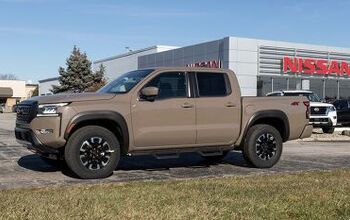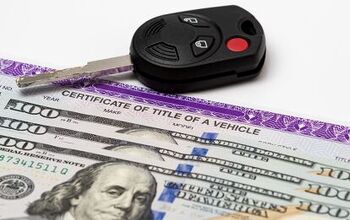Breaking the Law Is Safer When Everyone Else Is Breaking It

Google. While breaking privacy laws seems to be their global sport of choice, they sure do stick to the letter of the law when their autonomous cars are perusing American roads.
Oddly, that’s a problem according to the New York Times, because the rest of us operate our automobiles in a legal gray area, bending the rules to our benefit when we know we won’t get caught.
Google’s autonomous car project is — in its simplest form — four wheels, an array of sensors and software that tells the wheels what to do based on signals from the sensor array. Because that software is programmed in a way that follows traffic law in an absolute form, human drivers don’t know how to react it — and it doesn’t know how to react to humans.
This is because, for the most part, we break traffic laws is small ways all the time.
For example, four-way stops:
One Google car, in a test in 2009, couldn’t get through a four-way stop because its sensors kept waiting for other (human) drivers to stop completely and let it go. The human drivers kept inching forward, looking for the advantage — paralyzing Google’s robot.
If the Google car had been programmed to break the law by not waiting for all other vehicles to stop, it would have made it through the intersection.
But, it isn’t just the autonomous car of the future; drivers are having difficulties with the semi-autonomous features of today found in a number of vehicles, like lane departure warning systems:
Humans and machines, it seems, are an imperfect mix. Take lane departure technology, which uses a beep or steering-wheel vibration to warn a driver if the car drifts into another lane. A 2012 insurance industry study that surprised researchers found that cars with these systems experienced a slightly higher crash rate than cars without them.
Bill Windsor, a safety expert with Nationwide Insurance, said that drivers who grew irritated by the beep might turn the system off. That highlights a clash between the way humans actually behave and how the cars wrongly interpret that behavior; the car beeps when a driver moves into another lane but, in reality, the human driver is intending to change lanes without having signaled so the driver, irked by the beep, turns the technology off.
As difficult as it will be for autonomous vehicles to seamlessly blend in with the current infrastructure — regardless of the condition of that infrastructure — the biggest hurdle will likely be something much more difficult to change: human nature.

More by Mark Stevenson
Latest Car Reviews
Read moreLatest Product Reviews
Read moreRecent Comments
- Redapple2 Love the wheels
- Redapple2 Good luck to them. They used to make great cars. 510. 240Z, Sentra SE-R. Maxima. Frontier.
- Joe65688619 Under Ghosn they went through the same short-term bottom-line thinking that GM did in the 80s/90s, and they have not recovered say, to their heyday in the 50s and 60s in terms of market share and innovation. Poor design decisions (a CVT in their front-wheel drive "4-Door Sports Car", model overlap in a poorly performing segment (they never needed the Altima AND the Maxima...what they needed was one vehicle with different drivetrain, including hybrid, to compete with the Accord/Camry, and decontenting their vehicles: My 2012 QX56 (I know, not a Nissan, but the same holds for the Armada) had power rear windows in the cargo area that could vent, a glass hatch on the back door that could be opened separate from the whole liftgate (in such a tall vehicle, kinda essential if you have it in a garage and want to load the trunk without having to open the garage door to make room for the lift gate), a nice driver's side folding armrest, and a few other quality-of-life details absent from my 2018 QX80. In a competitive market this attention to detai is can be the differentiator that sell cars. Now they are caught in the middle of the market, competing more with Hyundai and Kia and selling discounted vehicles near the same price points, but losing money on them. They invested also invested a lot in niche platforms. The Leaf was one of the first full EVs, but never really evolved. They misjudged the market - luxury EVs are selling, small budget models not so much. Variable compression engines offering little in terms of real-world power or tech, let a lot of complexity that is leading to higher failure rates. Aside from the Z and GT-R (low volume models), not much forced induction (whether your a fan or not, look at what Honda did with the CR-V and Acura RDX - same chassis, slap a turbo on it, make it nicer inside, and now you can sell it as a semi-premium brand with higher markup). That said, I do believe they retain the technical and engineering capability to do far better. About time management realized they need to make smarter investments and understand their markets better.
- Kwik_Shift_Pro4X Off-road fluff on vehicles that should not be off road needs to die.
- Kwik_Shift_Pro4X Saw this posted on social media; “Just bought a 2023 Tundra with the 14" screen. Let my son borrow it for the afternoon, he connected his phone to listen to his iTunes.The next day my insurance company raised my rates and added my son to my policy. The email said that a private company showed that my son drove the vehicle. He already had his own vehicle that he was insuring.My insurance company demanded he give all his insurance info and some private info for proof. He declined for privacy reasons and my insurance cancelled my policy.These new vehicles with their tech are on condition that we give up our privacy to enter their world. It's not worth it people.”


































Comments
Join the conversation
Not human nature, just human habits. Also how is inching forward "breaking the law"?
About half the time when I encounter the "4-way stop problem" one or more of the drivers signals the other to proceed. How is the Googlemobile going to deal with that? I'm also thinking of the Air France flight that crashed in the south Atlantic after departing Brazile. The conclusion was that the sensors got confused, the autopilots disconnected and the flight crew had no idea what was going on. They put the aircraft into a stall, and several hundred people died.